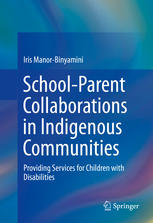

Most ebook files are in PDF format, so you can easily read them using various software such as Foxit Reader or directly on the Google Chrome browser.
Some ebook files are released by publishers in other formats such as .awz, .mobi, .epub, .fb2, etc. You may need to install specific software to read these formats on mobile/PC, such as Calibre.
Please read the tutorial at this link: https://ebookbell.com/faq
We offer FREE conversion to the popular formats you request; however, this may take some time. Therefore, right after payment, please email us, and we will try to provide the service as quickly as possible.
For some exceptional file formats or broken links (if any), please refrain from opening any disputes. Instead, email us first, and we will try to assist within a maximum of 6 hours.
EbookBell Team

5.0
88 reviewsPoverty. Lack of social support. Limited access to education. High risk for health problems. Indigenous communities face an inordinate number of hardships. But when children have special needs, these problems multiply exponentially, making existing difficulties considerably worse.
School-Parent Collaborations in Indigenous Communities: Providing Services for Children with Disabilities begins with an in-depth overview of indigenous experience and psychology, and situates disabilities within the contexts of indigenous communities and education services. The pilot study at the core of the book, conducted among the Bedouins of southern Israel, shows this knowledge in action as special education personnel engage parents in interventions for their children. Going beyond facile concepts of cultural sensitivity, the model recasts professionals as cultural mediators between school and family. This practice-oriented information has the potential to improve not only the well-being of children and families, but of the greater community as well.
Featured in the coverage:
School-Parent Collaborations in Indigenous Communities is a breakthrough resource for researchers, graduate students, and professionals working with special needs children in child and school psychology, international and comparative education, social work, cross-cultural psychology, public health, and educational psychology.